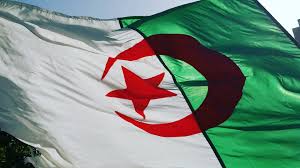
The International Monetary Fund (IMF) has warned Algeria that it must carry out sweeping budget reforms to secure its economic stability over the next three years.
Following its annual consultation, the IMF estimated that Algeria will need to make an adjustment equal to 5% of GDP between 2025 and 2028.
The institution called for a gradual reduction in energy subsidies, a diversification of tax revenues beyond hydrocarbons, and stronger oversight of state-owned enterprises.
“The authorities must ensure a more sustainable fiscal trajectory through phased reforms,” the IMF report stated, highlighting that discipline and transparency in public companies are crucial to easing pressure on state finances.
The recommendations come amid signs of slowing growth. Data from the Bank of Algeria showed that GDP growth fell to 3.6% in 2024. At the same time, the current account has slipped back into deficit and foreign exchange reserves are continuing to decline.
The IMF also advised Algeria to introduce greater flexibility in the dinar’s exchange rate, arguing that this would allow the country to better absorb external economic shocks. “A more adaptable exchange rate mechanism will help stabilise external balances,” the institution said.
Algeria’s economic vulnerability remains tied to its reliance on hydrocarbons, which make up almost 95% of exports and more than 40% of state revenues. Periods of falling international oil prices, such as the slump from 2014 to 2016, have historically weakened reserves and strained the national budget.
The Bank of Algeria has pointed to the rise of Islamic finance as a promising avenue for new funding, but experts caution it is not enough to reduce dependence on hydrocarbons. Broader governance reforms and the attraction of new investment are considered vital to long-term growth.
The IMF concluded that without a carefully planned fiscal adjustment and structural changes, Algeria may struggle to maintain stable public finances through to 2028.



